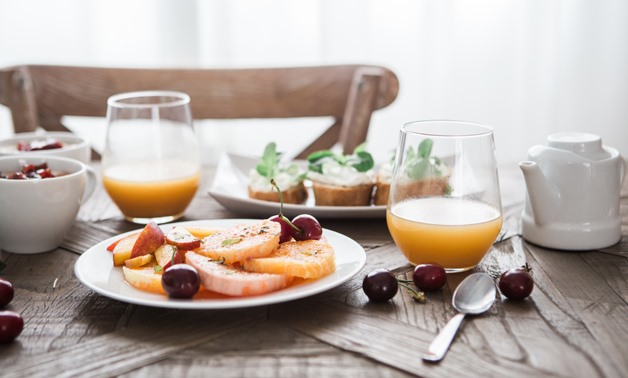
Courtesy: Unsplash
CAIRO-1 June 2017: It is that time of year again when Muslims around the world rejoice with joy as the beloved month of Ramadan draws near. For many Muslims, Ramadan is the time to fill the days with good deeds and the nights with spiritually uplifting prayer.
However, all the fasting and lack of sleep can take a toll on our bodies if we lack the necessary nutrients and hydration to carry us through the month. Taking the right steps can ensure that Ramadan will uplift us not only spiritually, but physically as well.
With Ramadan falling during the summer months, the days are longer and the nights are shorter, fasting is a challenge. Here are some tips to help you stay healthy through Ramadan.
1. Hydration isn't just water! Yes, water is the best way to hydrate our bodies, but it's not the only way- and with the long hours of fasting, we need all the help we can get!
o Fruit and herb infused water and teas are a fun way to hydrate as well as replenish essential vitamins and minerals in the body.
o Fruits and vegetables can also be an excellent source of hydration; (take notes!) watermelon, lettuce, cucumbers, zucchini, celery, tomatoes, grapefruits, cantaloupes, and strawberries take the lead in water content.
o Salads with the right protein and unsaturated fat add-ons are great, filling, and hydrating iftar meals.
o Broth-based soups are also ideal for iftar especially when made with bone broth. Bone broth is abundant in minerals, enhances immunity, and helps heal the gut and reduce intestinal inflammation.
o Smoothies are excellent for suhoor and can be customized to suit your tastes and needs. Start with a base such as milk, yogurt or coconut water. Add in fruit, vegetables, seeds, or grains. Depending on what’s added, smoothies can provide hydration, antioxidants, vitamins, minerals, and even protein, making them a fast and easy way to fuel you through the long fast.
2. Food choices matter! Excess salt and sugar will pull water out of cells leaving your body thirsty, so choosing the right foods to prevent thirst is just as important as hydrating.
o Avoid high-fat foods such as fast foods, fried food, and processed/instant meals because the sodium content in these foods is usually much higher than desired.
o Swap other salty foods such as pickled food, canned food, salted nuts, and salty crackers with fresh, wholesome foods.
o The same concept applies to sugary items. Swap sugary drinks (sodas, fruit juices with added sugars, etc.) with flavored water, milk, fruits, and vegetables.
3. Don't skip suhoor! Suhoor is a kick-start to your day and helps your body sugars stabilize more because meals are being distributed instead of eaten in one shot at iftar. See smoothie tips above!
4. Avoid being in the heat for extended periods of time. For obvious reasons.
5. Avoid eating very large meals at Iftar. Keep meals light and balanced. Increase vegetable portions in your meals to avoid sugar spikes.
6. Enjoy light physical activity before iftar daily or every other day.
7. Avoid sleeping right after suhoor and iftar. This will help your body digest your meal better.
8. Get enough rest! We all want to keep up with prayer and worship; however, it is important for your body to get enough rest to function well through the month. Use your time wisely throughout the day to avoid cramming everything at night.
Put in mind that Ramadan is a time to rejuvenate your body as well as your soul!
This article was originally published in Haute Hijab.

Comments
Leave a Comment